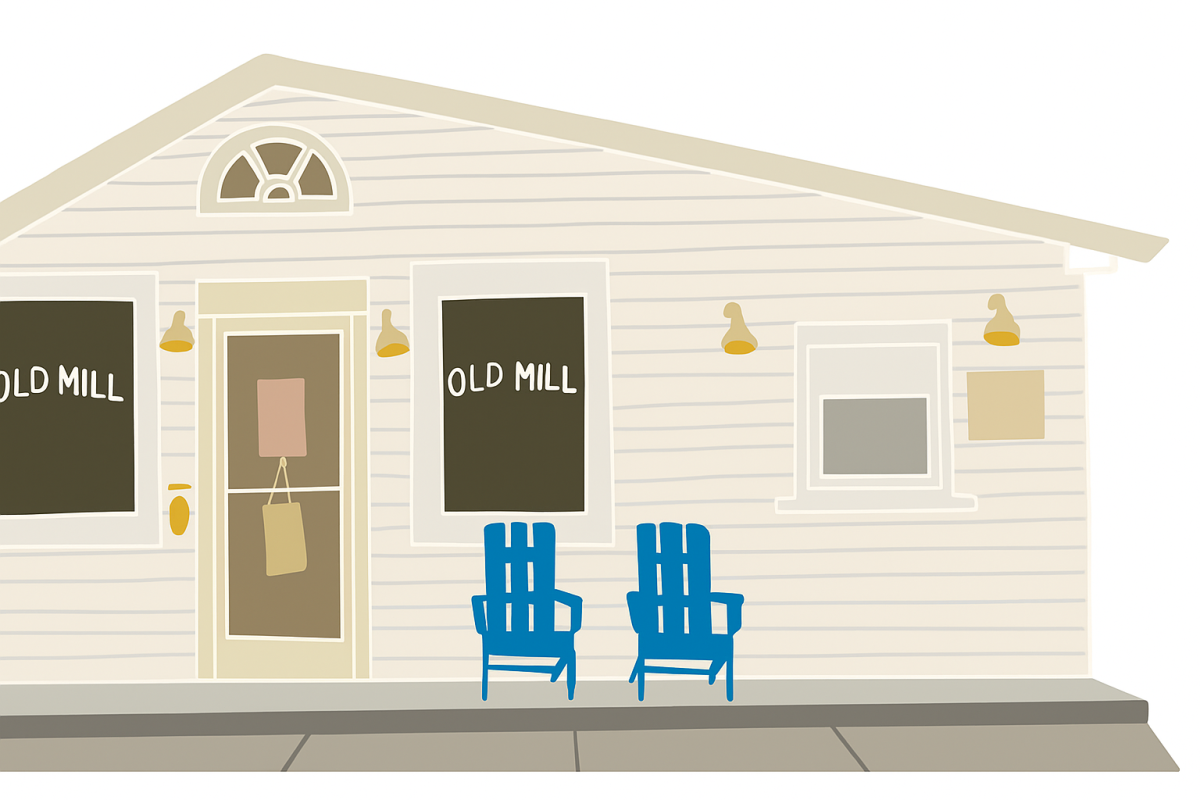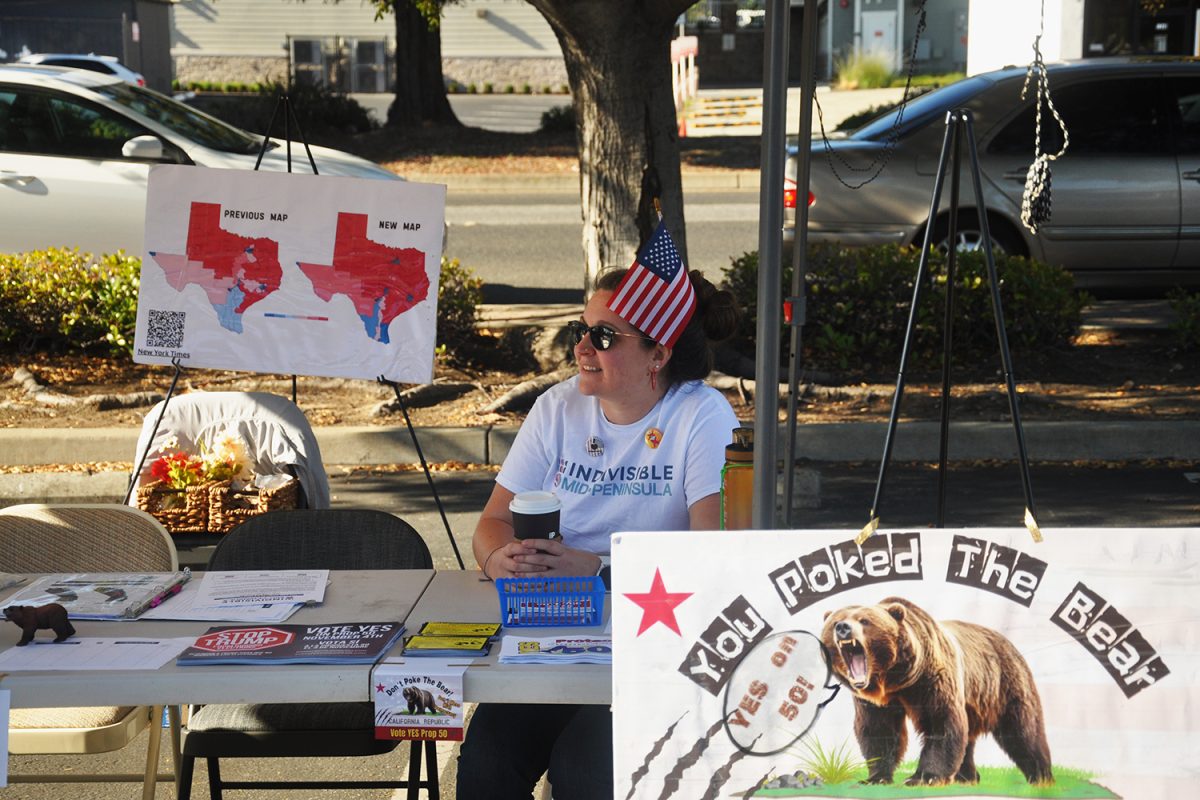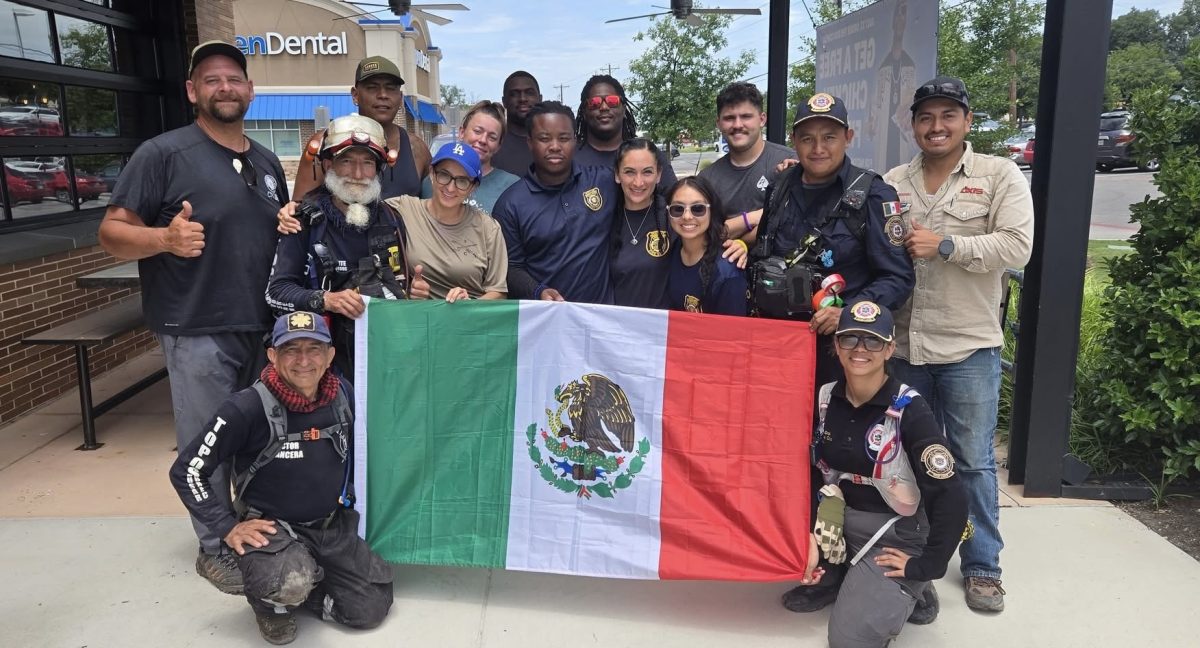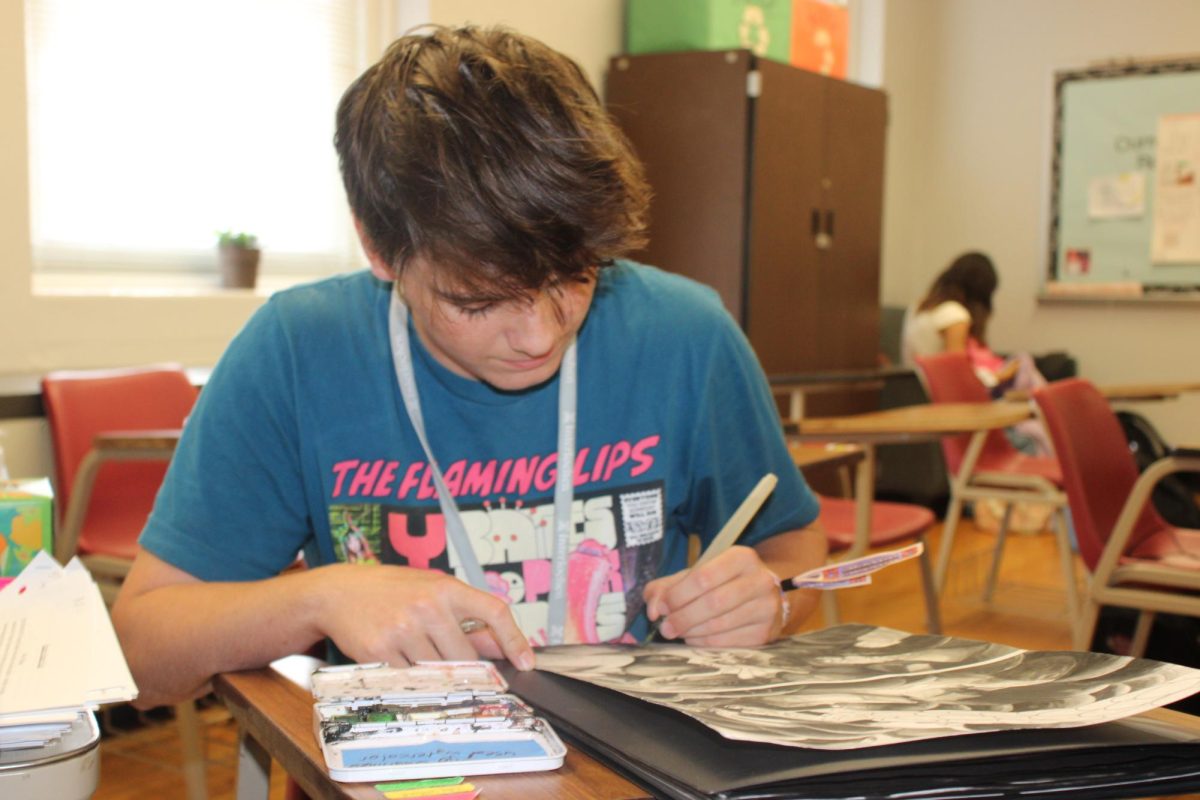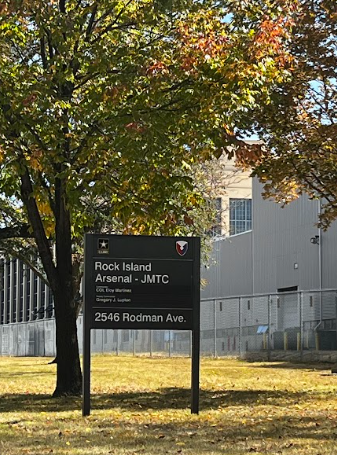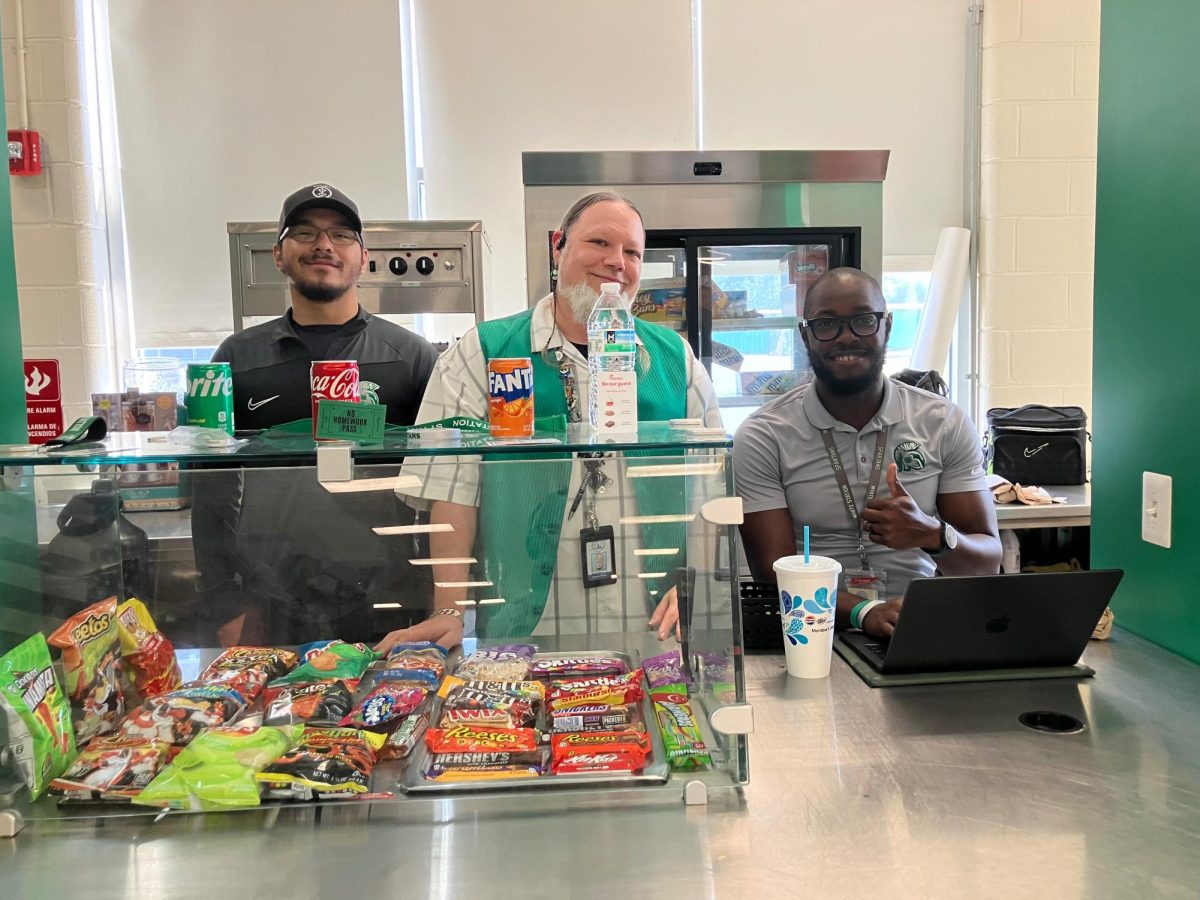Notable Alumni Reflect on Years at Grady
October 18, 2022
Boys’ High School opened in 1872 as one of the first two schools in the Atlanta Public Schools system. Newspaper articles of the time highlighted the school’s academic success.
“The citizens of Atlanta should be proud of the excellent training for life given by their sons by the faculty of the Boys’ High School,” an Atlanta Constitution article on Sept. 14, 1913 said, praising the school.
Though the name may have changed through the years to Grady in 1947 and Midtown in 2021, the educational institution located at Charles Allen Drive and 10th Street has continually fostered excellence for 150 years. In 2020, the graduating class of Midtown received almost $17 million in scholarships for their continued higher education.
“We create collaborative experiences,” Assistant Principal Willie Vincent said. “The school paradigm has shifted dramatically around here. Teachers are not the ‘sages on the stages,’ but they are the facilitators of optimal student learning.”
A primary goal of Boys’, Grady and Midtown has been to cultivate a sense of responsibility and individuality for students to effectively prepare students for later life according to vice principal Willie Vincent.
“We support and urge students to create leadership experiences,” Vincent said. “Students often submit ideas for new clubs and organizations.We welcome such.”
The cumulative impact of Midtown’s alumni echoes in the halls.
“I believe that the school does care a lot for alumni accomplishments,” art teacher John Brandhorst said. “Any given year has at least five or six decades of alumni grouping somehow.”
Brandhorst said he hopes that the Homecoming activities reflect the prominent sesquicentennial anniversary.
“The foundation has made some inroads for the alumni, but there is still a long way to go. The Homecoming game could and should be a better hub for [the alumni]. Nothing brings alumni together better than a winning football team. I hope that alumni outreach is a part of the central agenda for this recognition.”
Yolanda King, 1972, Activist and Artist
With a magnetic, bold energy and a tenacity for life, Yolanda King, or to all of her Grady peers “Yoki,” started her lifelong career as a leader within Grady’s Charles Allen Drive’s brick facade.
“She treated everyone with a great level of respect and possessed a personality that just attracted people to her as a natural leader,”said Malcolm Williams, a graduate of 1972 and close friend of King’s at Grady.
Yolanda King, Martin Luther King Jr.’s eldest daughter, was born two weeks before Rosa Parks refused to give up her seat on a public transit bus in Montgomery, AL. and was raised knowing how to use her voice for the greater good. She passed away from cardiopulmonary problems in Las Vegas at the age of 51 in 2007.
In high school, she paved her own path, serving as the president of her sophomore and junior class, and vice president of her senior class, along with active roles on the student council. Making a name for herself, King was highlighted by world magazines in her teenage years.
“Even though she could have received a lot of attention because she was Martin Luther King’s daughter, building her whole career and personality around it, she chose to just be “Yoki” when she was around us,”Williams said. “She never tried to play celebrity when she was around us because it wasn’t who she was.”
After she lost her father when she was 12, King took on a lot of responsibility at a young age to her family and to the public. When she was 43, she recalled in an interview trying to escape the shadow of her father at times in her youth, paving her own way through leadership and civic action and creating her own identity and name for herself.
“I think when you come up in something, and it’s real pure and genuine, you may try to escape it,” King said. “And, I tried.”
Along with her involvement in school politics, King had strong academics and graduated inthe top 10 percent of her class. She got her BA check AP Style for BA in theater and African-American studies at Smith College and a MFA from New York University. When she wasn’t focusing on her studies, King found a passion for theater.
In her sophomore year at Grady, King appeared in the spring play “The Owl and the Pussycat” where she starred with a white male lead and sparked national controversy. For the most part, her mother sheltered her from the coverage she was getting, and she didn’t fully discover the magnitude till years later.
“I thought it was absolutely ridiculous then,” Williams said. “I think it is absolutely ridiculous now. And, that may have not been the case if she was not MLK’s daughter. No one would have even known she was in the play, let alone, be so critical.”
After college, King continued to use her voice as an artist to make change. She became the co-director with Atallah Shabazz, the daughter of Malcolm X, of NUCLEUS, a troupe of performing artists dedicated to ”promoting positive energy through the arts.” King also co-edited the poem and short story anthology, “Open My Eyes, Open My Soul,” which focused on looking past people’s individual differences to unite for peace.
King additionally worked for social progress as an activist for gay rights and served as director of the King Center’s Cultural Affairs Institute for Nonviolent Social Change.
“She was naturally so down to Earth with a strong sense of humility,” Williams said. “She will always be remembered as a phenomenal, influential person.”
Matt Westmoreland, 2006, Politics and Education
Matt Westmoreland’s impact on APS lasted much longer than his four years in high school from 2002-2006. As a Morningside native, he advanced through Inman Middle School and Grady, making his way to Princeton University and back to APS as a teacher and school board member. He now serves as an Atlanta City Councilman.
“My time at Grady, especially my junior and senior years, sparked my interest in education that kind of stuck in the back of my mind during college,” Westmoreland said. “Ultimately, it is what drove me to come back to Atlanta Public Schools and be a teacher at Carver (High School) for four years before I ran for the school board.”
During his time on Grady’s E and C hallways, Westmoreland filled his schedule with challenging academic courses, worked as a Managing Editor of “The Southerner,” the highest position at the time, competed in mock trials and was the 2005-2006 SGA class president.
“My experience in AP US History and on the Southerner staff ultimately prompted me to major in history in college and serve on the Daily Princetonian,”Westmoreland said.
Westmoreland’s time at Midtown created life-long mentors, like Dave Winter, the Southerner’s advisor at the time, and Jeff Cramer, his physics teacher, who taught him many lessons inside and out of the classroom.
“So many of the teachers I had all four years built frankly unbelievable relationships with students,”Westmoreland said. “They all pushed us hard and out of our comfort zones but served as a support system when we needed it.”
Connecting with the school through extracurriculars, Westmoreland said he appreciated the racial and socioeconomic diversity of his surroundings as a teenager.
“It was a special place to go to school, with the diversity of thought and level of freedom you got, where high schoolers get to run a paper that no administrator ever tries to censor,”Westmoreland said.
Westmoreland saw how these differences impacted the educational experiences for his peers. He recalled a time when he was talking to his two mock trial teachers and looked over either of their shoulders into two classrooms with completely different demographics. Larry McCurdy’s AP Literature class had about 15 students, and all were white but one while Maron Sorenson’s ninth on-level literature class had twice as many kids, most of whom were Black.
“That stark visual of division that existed made me realize that my experience in APS and at Grady was different even than the experience of some of my classmates,” Westmoreland said. “It planted a seed in the back of my mind that once I graduated from college, I wanted to go into education and be a teacher that would try and create opportunity and spark passion in students the same way that had been done for me by my teachers.”
As he carried these observations and life lessons into a successful career, Westmoreland believes that it served as a foundation for how he has been able to give back.
“All my time as a teacher, on the school board, and on the city council can be tied back to my experiences at Grady,” Westmoreland said. “My entire outlook on life and the values that I care about evolved from my time there.”
Stuart Eizenstat, 1961, Diplomat and Attorney
One minute, he was on the basketball court as an all-city and honorable mention All-American player aiming for a hoop with a large Grady log across the chest. Next, he was one of the right hand men for the President of the United States.
Stuart Eizenstat, who graduated with the Class of 1961, made a global impact with a significant career as a politician and lawyer using the skills he learned at Grady. After being recognized as a top student with a 4.0 GPA, he furthered his post-secondary education at University of North Carolina-Chapel Hill where he graduated sum laude.
He progressed to Harvard Law School, receiving his Juris Doctorate in 1967. In 2008, UNC created the Ambassador Stuart E. Eizenstat Distinguished Professorship in Jewish history and culture in Eizenstat’s honor.
“Nothing, academically, would have been possible without the grounding that I got at Grady in academics and in discipline,”Eizenstat said.
He was heavily involved in sports, including basketball and baseball, and enjoyed the mandatory JROTC that he went through during his high school years.
“If Grady is not doing well, one point down with 10 seconds to go, and you are at the free throw line and you have a one and one shot,” Eizenstat said. “It teaches you how to operate under pressure.”
Eizenstat’s friend,Henry Bower Jr., introduced him to Jimmy Carter, as he was working for the Georgia governor election campaign for Carl Sanders. From there, Eizenstat and Carter begin working closely together. He became Carter’s policy director when he ran for governor in 1970 and later became his policy director when he ran for president in 1975-76. He continued to serve when he was in office as the White House Domestic Policy Adviser from 1977-81.
“Henry began my relationship with Jimmy Carter that would shake my entire life, which really propelled my whole public career,” Eizenstat said. “It was all a result of my friendship with Henry at Grady High School.”
After serving for Carter after he was elected president in 1976,, Eizenstat continued his political career as the United States Ambassador to the European Union from 1993 to 1996 and as President Bill Clinton’s Deputy Secretary of the Treasury in 1999 to 2001.
For the past 20 years, he has served as the international lead and senior counsel for Covington & Burling, a world-wide law firm based in Washington, D.C., and was appointed as the Special Advisor for the Holocaust Issues by the U.S Secretary of State, Hilary Clinton, in 2013.
For his specialized work in world peace and Holocaust restoration, Eizenstat has received international recognition and awards, including the Leo Baeck Medal in 2013 and the Knight Commander’s Cross (Badge and Star) of the Order of Merit of the Federal Republic of Germany and the International Advocate for Peace Award from the Cardozo Journal of Conflict Resolution.
He paved his path with the academic foundation set at Grady as an A-student.
“Grady High School was absolutely essential for propelling me for the career that I later had in public service and in law, building an academic and athletic foundation and bringing lifelong friends,” Eizenstat said.
Earthwind Moreland, 1995, Football Player and Coach
Earthwind Moreland, a 1995 Grady graduate went far with his football career after playing four years in high school.
“I had a great experience playing for Grady,” Moreland said. “We were a really close team and truly enjoyed playing together.”
After earning All-City football honors,, Moreland continued as a collegiate and professional athlete. At Georgia Southern University, he played on the 1996-1998 teams, which won three consecutive Southern Conference titles and won the NCAA 1-AA national championship his senior year.
“It was easy to go play in college and beyond because of the team culture at Grady,” Moreland said. “One of my best friends, who I had played with through childhood and Grady went to play at Georgia Southern for basketball; so I knew we were doing it together.”
After bouncing around on several NFL teams, Moreland signed with the New England Patriots, who won Superbowl XXXIX 2005. In the 2004-2005 season, Moreland started two out of nine games, and was the fourth cornerback on the depth chart.
“Grady taught me how to play with a team that I used later,” Moreland said. “It was so much easier for us to get through a game because we were bonded together and built off of each other.”
Moreland returned to work at Grady in 2014 and led the Knights as the head football coach through a successful streak for four years. He now serves as the head football coach at Mundy’s Mill in Clayton County, leading this season with a 5-1 streak.
“When I returned, I saw nothing but familiar faces, and it felt good to be back in the Grady community again,” Moreland said.
Danielle Deadwyler, 2000, Actress
“Expand. Expand. Expand.” That’s the mantra Danielle Deadwyler carried with her throughout her time at Grady and later in her career. As an adult, Deadwyler has made a name for herself on screen, starring in multiple feature films, and off-screen as a seasoned director.
“I was pushed to the next level of practice as a thinker and creator while there, from literature to debate and theater,” Deadwyler said. “My teachers, peers and creative opportunities leaders believed in me, and I was encouraged to expand daily.”
From her start as a student at Grady, Deadwyler was involved in an array of extracurricular activities and was recognized by the student body as an outstanding member of the school community.
“I was voted best all around upon graduation, so I did everything — sports (track, softball, soccer), drama, debate, GNN (Grady News Now), MindBusters,” Deadwyler said. “These were opportunities I embraced as a student.”
Deadwyler went on to earn several honors. Since her debut in 2012, Deadwyler has garnered critical acclaim for her notable performances as Lemon Cassidy in “The Devil to Pay”, where she was recognized as Best Actress in a Feature Film by GenreBlast Film Festival, and as Cuffee in the 2021 western film “The Harder They Fall,” which was nominated for 12 and won 5 national film awards. In Oct. 2022, she will star as Mamie Till-Mobley in the upcoming biographical drama film, “Till.”
After high school, Deadwyler continued her education at Spelman College before receiving a Master’s of Arts in American Studies from Columbia University. Deadwyler accredits her latter success to the foundation in her youth.
“Grady instilled a rigor to learning, a joy to explore and create,” Deadwyler said.
As a multi-talented teenager, Deadwyler was constantly pushing herself and overcoming obstacles. She has carried those principles into her career, where she works to educate and support social equity through various arts educational projects.
“My experience encouraged me to be well-rounded and introduced me to a community of lifelong friends and chosen family,” Deadwyler said.
This story was originally published on The Southerner on October 12, 2022.


